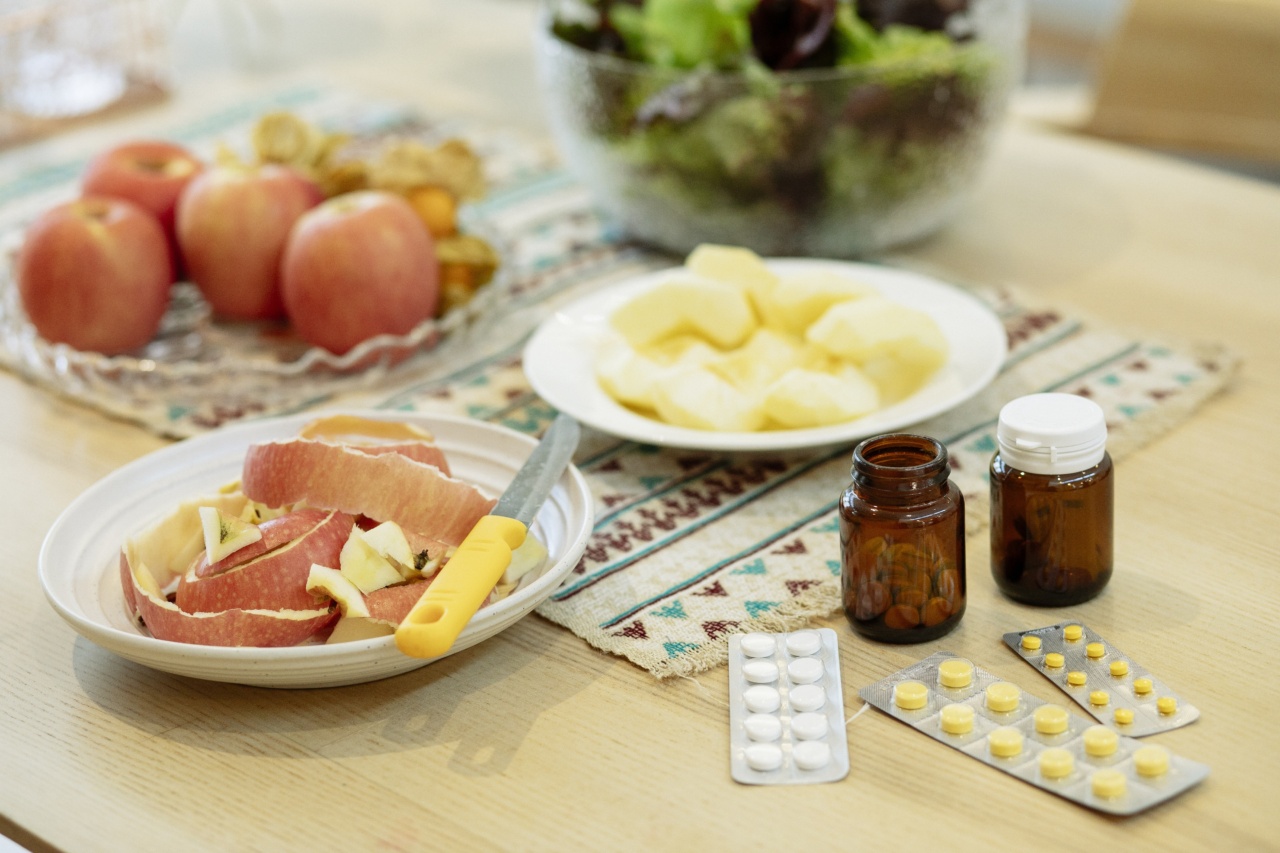Radiotherapy is a common treatment for cancer that involves the use of high-energy radiation to kill cancer cells and shrink tumors.
While radiotherapy can be effective in destroying cancer cells, it can also cause inflammation and damage to healthy tissues surrounding the treatment area.
After undergoing radiotherapy, it is important to promote healing and reduce inflammation in the body. One way to achieve this is by incorporating anti-inflammatory foods into your diet.
These foods can help alleviate pain, reduce swelling, and support the recovery process. Here are some of the top anti-inflammatory foods to include in your post-radiotherapy diet:.
1. Turmeric
Turmeric contains a compound called curcumin, which has powerful anti-inflammatory properties. Adding turmeric to your meals or consuming turmeric supplements can help reduce inflammation and support the healing process.
Consider adding turmeric to curries, soups, or even smoothies for an extra health boost.
2. Ginger
Ginger is another powerful anti-inflammatory spice that can help reduce pain and inflammation post-radiotherapy. It contains compounds called gingerols, which have been found to have similar effects to non-steroidal anti-inflammatory drugs (NSAIDs).
Incorporate ginger into your diet by using it in teas, adding it to stir-fries, or even grating fresh ginger over salads.
3. Berries
Several types of berries, such as blueberries, strawberries, and raspberries, are packed with antioxidants and have strong anti-inflammatory properties.
These berries can help reduce inflammation, provide essential nutrients, and support overall recovery. Enjoy a handful of berries as a healthy snack or add them to smoothies and desserts.
4. Leafy Greens
Leafy green vegetables like spinach, kale, and Swiss chard are rich in antioxidants and other beneficial compounds that can help reduce inflammation.
Including these greens in your diet can provide essential vitamins, minerals, and fiber while supporting your body’s healing process. Add leafy greens to salads, soups, or sauté them as a side dish.
5. Fatty Fish
Certain types of fatty fish, such as salmon, mackerel, and sardines, are high in omega-3 fatty acids, which have potent anti-inflammatory effects. Consuming omega-3-rich fish can help reduce inflammation, promote healing, and support overall wellness.
Try adding grilled or baked fatty fish to your meals a few times a week.
6. Nuts and Seeds
Various nuts and seeds, including almonds, walnuts, flaxseeds, and chia seeds, are excellent sources of anti-inflammatory nutrients. They are rich in healthy fats, fiber, and antioxidants, all of which can aid in post-radiotherapy recovery.
Enjoy a handful of nuts as a snack or sprinkle seeds over yogurt, smoothies, or salads.
7. Avocado
Avocado is a unique fruit that is not only delicious but also offers numerous health benefits. It is packed with monounsaturated fats and antioxidants, which can reduce inflammation and promote healing.
Incorporate avocados into your diet by adding them to salads, sandwiches, or simply spreading mashed avocado on whole-grain toast.
8. Extra Virgin Olive Oil
Extra virgin olive oil is a great source of monounsaturated fats and contains a compound called oleocanthal, which has potent anti-inflammatory properties.
Drizzle olive oil over salads or use it for cooking to enjoy its health benefits and support your recovery process.
9. Green Tea
Green tea has been studied for its potential anti-inflammatory effects and is rich in antioxidants that can aid in post-radiotherapy recovery. It can be enjoyed hot or cold and makes for a refreshing and health-promoting beverage option.
10. Dark Chocolate
Yes, you read it right! Dark chocolate, particularly the one with a high cocoa content (70% or more), is rich in antioxidants and has been shown to have anti-inflammatory effects.
Consuming small amounts of dark chocolate as a treat can provide both pleasure and potential health benefits during your recovery period.
Incorporating these anti-inflammatory foods into your diet can potentially help reduce inflammation, promote healing, and support your overall well-being as you recover from radiotherapy.
Remember to consult with a healthcare professional or a registered dietitian before making any significant changes to your diet, especially if you have any underlying health conditions or take medication.





























